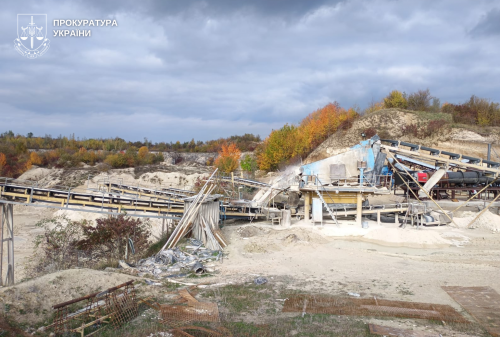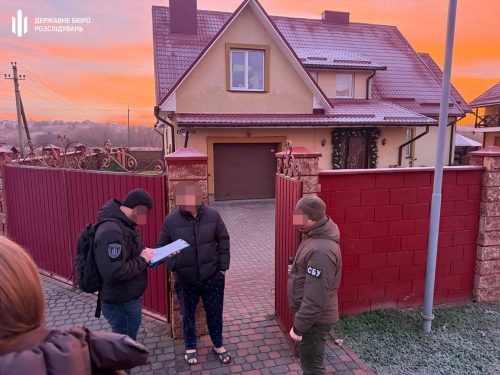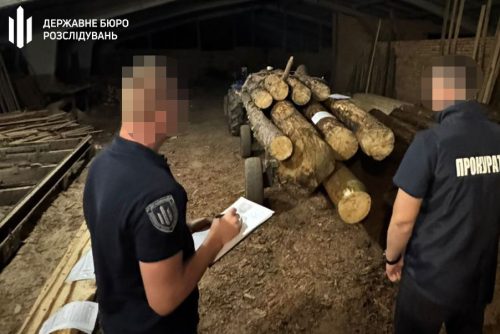In Ukraine, about 30% of the volume of real logging is outside the law. In different regions, this share can range from 2 to 50%.
This was told by Dmitry Karabchuk, forester, candidate of agricultural sciences, chairman of the board of the NGO "Forest Initiatives and Society" in an interview with the newspaper "Mir."
He refers to the research data of experts, as well as his own analysis of the NGO "Forest Initiatives and Society."
Dmitry Karabchuk spoke about the scheme that the forestry came up with in order not to conduct an environmental impact assessment (EIA) during continuous sanitary logging (SSR) of the forest on an area of more than 1 ha, as required by law. For example, to cut down 10 hectares, they make out this felling as work on 11 small plots. This avoids EIA. The specialist stated that so far this problem has not been solved, but noted that criminal cases have even been opened in such cases.
"In addition, the lobbyists prepared and submitted to the Verkhovna Rada for consideration draft law No. 9516, which will actually cancel the conduct of the OVD. This draft law cannot be adopted under any circumstances," the head of the NGO "Forest Initiatives and Society" is confident.
Who conducts illegal logging
Dmytro Karabchuk spoke about 4 categories of logging that are illegal:
1. SSR appointed with violations.
"If the trees seem to be sick, but are actually healthy, then this is illegal felling, if there is even a logging ticket. Dishonest forest pathologists are involved here, who gave a fake conclusion about tree diseases. Forestry workers are involved, who also know that the forest is healthy and the SSR is not needed," he said.
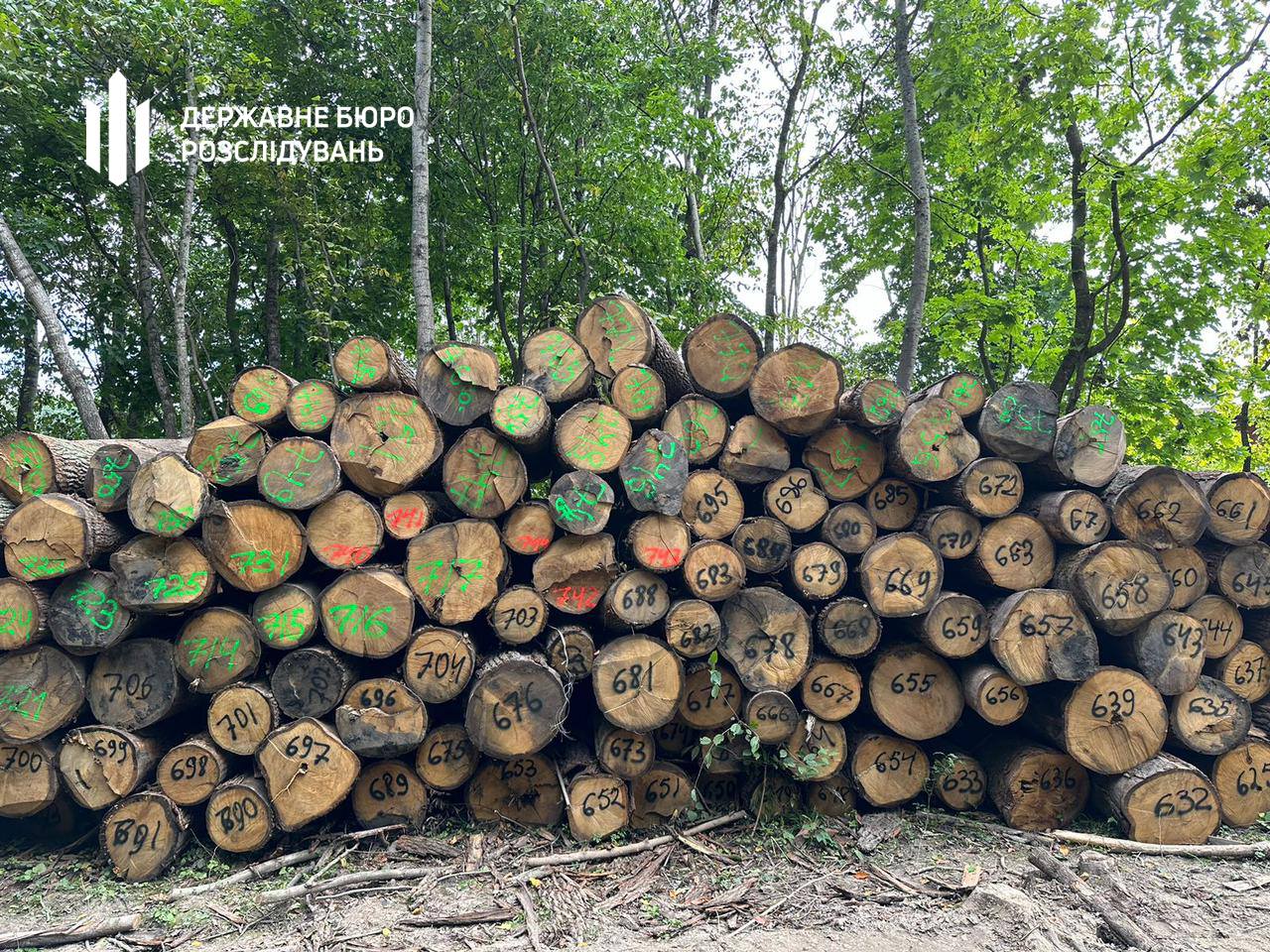
Photo: dbr.gov.ua
2. Felling, which is carried out by forestry workers themselves, and in the course of which not all cut wood is accounted for.
"In the course of legal felling, either not all trees are accounted for, or the cubic capacity is underestimated. 20-30% of wood accumulates in an illegal pool. These products are sold for cash, taxes are not paid, they are stolen forest products. It is either mixed with the officially acquired one, or goes "to the left" completely. In order to detect it, the State Forestry Agency is introducing photo fixation. But the question is who will conduct the inspection after the photo-fixation," the expert noted.
3. Demolition of trees by "black lumberjacks". According to the specialist, small private enterprises, former law enforcement officers, and the police may be involved in this. In Polissia, violators work in whole teams, each of which performs its own function: someone marks valuable trees with fluorescent paint, someone saws and clears them, and others take them away.
"Here, only the means of monitoring can be useful for forest protection," the head of the NGO is confident.
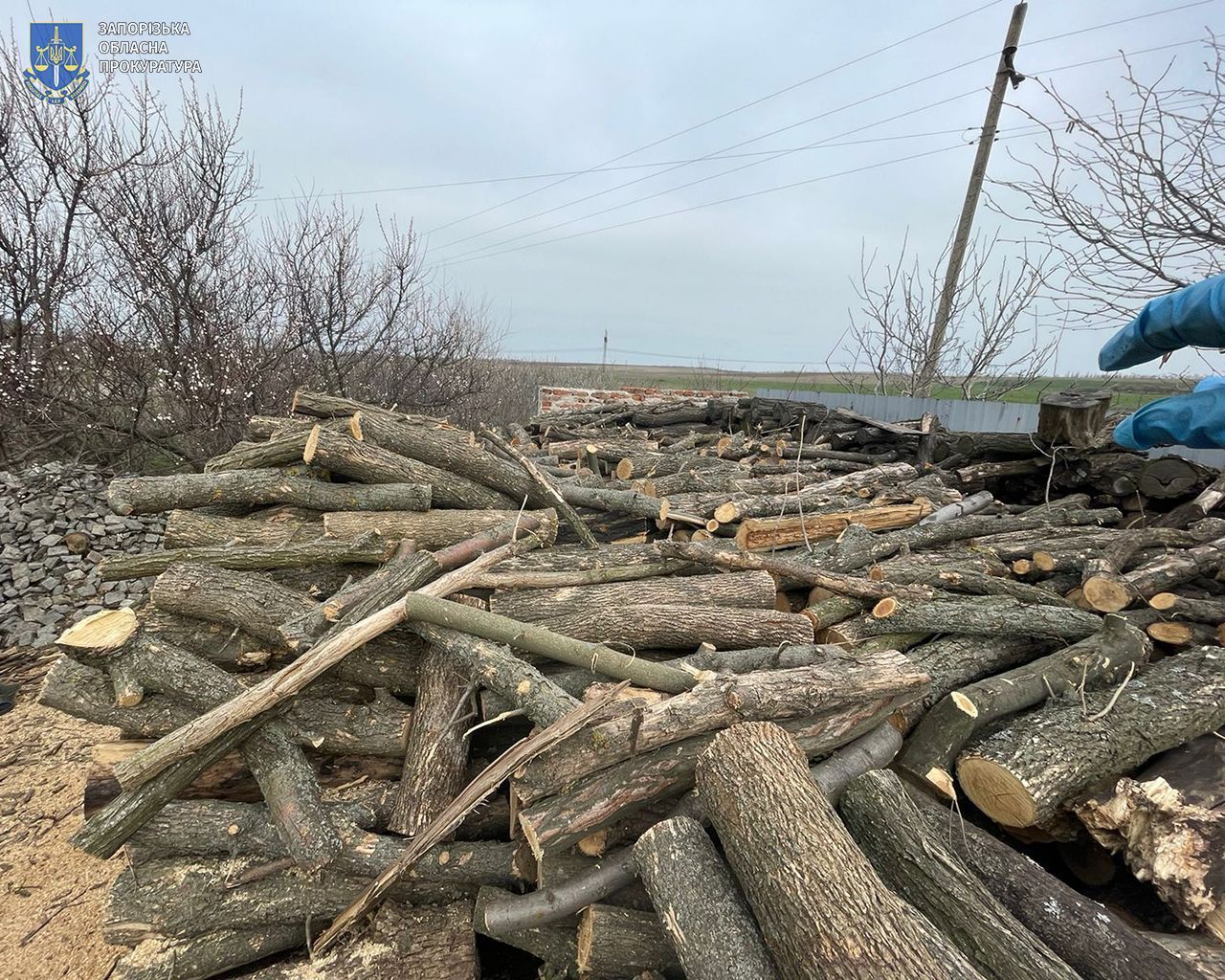
Photo: zap.gp.gov.ua
4. Illegal felling of self-forested agricultural lands. The forester said that the State Enterprise "Forests of Ukraine" wants to take such forests for its own use, if they are owned by rural communities. But communities are reluctant to do so, because in this case they lose this land as agricultural land.
"If it's about private land, it's a private person's decision. There were about 2.5 million hectares of such forests. Now there are only half a million left. The state, in particular the State Forestry Agency, was late with decisions regarding the preservation of these forests," Karabchuk said.
The expert said that there are sawmills in Ukraine that work only on illegally harvested wood.
"These are widely known in the Lviv region, because they take the forest from the areas that our public organization surveyed. This is not news. Five years ago, there was an accounting of illegal sawmills, experts counted more than 100," he claims.

The expert said that there was even an attempt by state authorities to inspect them. But contrary to common sense, the inspectors came upon legal sawmills. When asked by activists why inspections of illegal enterprises are not carried out, the inspectors answered that they cannot be sent to inspect sawmills that do not officially exist.
"I don't know why raids are not carried out on such sawmills, because they cause terrible economic losses for the state budget and the budgets of communities that do not receive taxes. And our Armed Forces do not receive any taxes either. It's a very strange situation," the expert was indignant.
Are violators punished for illegal harvesting of wood
The NGO "Forest Initiatives and Society" analyzed judicial statistics and noted an annual increase in the number of cases for illegal cutting of forests, which are brought to court, in particular, under Article 246 of the Criminal Code. For example, in 2019 there were 197, in 2022 – 504, in 2023 – 590.
Experts also recorded an increase in the share of investigated cases, from only 6% in 2019 to already 20% in 2022 (22% in 2023). There has been an increase in the number of cases pending in courts, from 300 in 2019 to 595 in 2022 (711 in 2023). Sentences also increased: from 167 in 2019 to 535 in 2022 (657 in 2023).
But despite this, the activists emphasized that there were few serious sentences.
"Lawbreakers are either released on bail, or given a suspended sentence, etc. It is very bad that transport and tools are almost not withdrawn in favor of the state under these circumstances. Now, the positive developments that were at the beginning of the term of office of the new councils are leveled by the adoption or attempts to adopt inadequate laws and regulations, despite the fact that we record an increase in illegal logging this year, a gradual retreat from the chosen strategy to fight against illegal logging of our forests is observed. says Dmytro Karabchuk with despair.
The other day, EcoPolitic reported that the European Commission sees threats in draft law No. 9516 on sanitary felling of forests. We also talked about what is in this document embedded corruption mechanism , which will allow unscrupulous foresters to put a margin of 2400% for the received wood into their own pockets.
Despite the opposition of experts and activists to its adoption, the ecocommittee voted in March for this scandalous bill. And on June 6, in particular, thanks to public publicity, draft law No. 9516 on sanitary logging took off from the agenda of the Verkhovna Rada.



